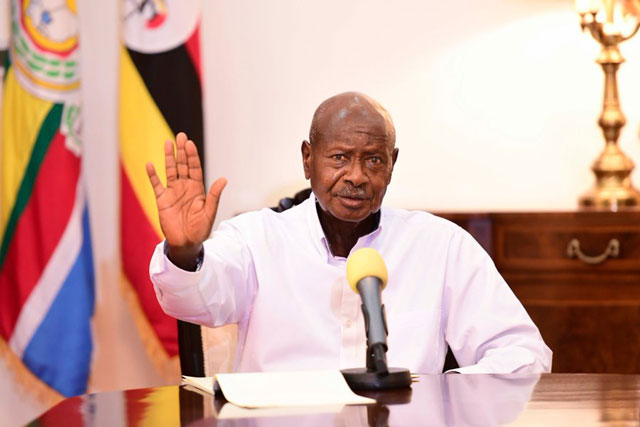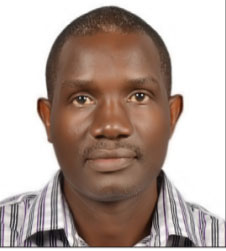
What government needs to quickly communicate to reduce anxiety and misinformation about its next moves
COMMENT | JOSEPH WERE | The 21-day countrywide lockdown that President Yoweri Museveni announced on April 14 ends on May 05. It was an extension to the earlier 14-day lockdown. The main question now is what will happen after the current lockdown ends. Another extension is possible but undesirable.
It is undesirable because the lockdown imposes a total blockade on life. Public transportation; except for cargo and delivery vehicles, and private vehicle use; except for essential service providers with special stickers is banned. Schools, religious and recreational events and facilities, and non-food and non- critical people’s movements from home are banned. There is a dusk to dawn curfew. The impact of these impositions on personal life decisions is already being seen.
Away from their regular work and paychecks, many individuals are finding it difficult to access basic livelihood needs including nutrition, accommodation, services and leisure. Providing food for impoverished families is a major concern.
An equally big concern is the uncertainty over what happens when the current lockdown ends on May 05. Anxiety over this issue is creating nation-wide stress. Increased cases of domestic violence, child abuse, and irrational behaviour are being reported. Fathers are abandoning families, frustrated mothers are dumping children, crime is rife.
The lockdown appears to have worked very well for Uganda so far but the rising tension shows it cannot be an end in itself. The government needs to quickly communicate its next move beyond the lockdown. That is what a journalist possibly meant when he asked the permanent secretary in the Ministry of Health to explain the strategy behind the latest lockdown. Unfortunately, the response to the question revealed gaps in the government’s vision beyond the lockdowns.
The permanent secretary explained that the government is using the 21-day lockdown to do three things; trace the next level of contacts of the confirmed COVID-19 cases, quarantine and treat them, and test cross border truck drivers for the disease.
Tracing, tracking, isolating, and testing and treating are absolutely critical in the fight against COVD-19. But these interventions are not a strategy. They are short-term tactical activities. The strategy should focus on the longer term.
Most experts recognise that COVID-19 will not have been wiped out by May 05. They caution that COVID-19 will continue to wreak havoc, pain, and death for many years unless a cure or vaccine is found. A top virologist has said localised cases will be popping up for years. ln fact, based on what has happened in other countries the severity of the disease could escalate in Uganda. A Ministry of Health planner has projected that up to 1.2 million people could suffer from the disease in Uganda at different times over the next six to 12 months. What happens then? Will the government declare another month-long lockdown every time cases pop-up? Will the public comply? Will the government be able to continue to offer free food to even more people? The government needs to explain to the public the different scenarios it is planning around. This will help avoid uninformed people making assumptions.
It appears certain that any government strategy should focus on a scenario of a society that functions in a COVID-ridden environment and is not locked down in fear of the new reality. Public transport, schools, shopping arcades, concerts, stadiums, worship venues and many more will have to re-open at some point whether COVID-19 has a cure or not. A Harvard University study has found that even with a cure, new lifestyles like social-distancing will remain relevant into 2022. Living with COVID-19 is the new normal. The government needs to articulate how it plans to redirect life in this new world.
That COVID-19 kills about 5% of hospitalised cases is a crude but good basis for designing a strategy. Based on these figures, experts have concluded that defeating COVID-19 is more of a logistical challenge than a health challenge. Tracing, tracking, and quarantining and testing are logistical not health challenges. Less than 10% of infected persons require treatment. Many are asymptomatic transmitters of the disease. Most show mild symptoms that do not require hospitalisation. Treating COVID-19 patients, which is the clear clinical intervention is still a gamble as there is no cure. The main challenges in hospitals appear to be logistical. How to get medical personal the right protective gear, testing kits, life support machines, and palliative medicines. How to house, feed, and reintegrate into society the quarantined patients and suspect cases.
Outside of the health system, the recommended interventions are frequent proper washing of hands with soap and water, keeping one’s distance from potential sources of the disease like crowded places, public transport, and markets, and staying indoors. Self-quarantine is a critical intervention. These are all logistical issues. They are what the government needs to focus on.
Well-serviced quarantine facilities across the country could encourage more suspected cases to use them. The government should also develop capacity to routinely disinfect large areas such as markets, shopping malls, churches, stadiums very quickly and effectively at short notice. Public transport vehicles should be disinfected every day. Hand sanitiser use, temperature checks, face masks, and social distancing should become routine everywhere. Non-essential travel and visits should be discouraged. Taxis, buses, and boda bodas should be colour coded and branded and routes defined for easy tracking of operators and users. Only workers and necessary visitors should be allowed into factories and office buildings. Schools should operate morning and afternoon shifts to reduce over-crowding.
At the socio-economic level, the government needs to develop effective databases on the population to ease tracing and tracking, especially of vulnerable people. On a wider level a lockdown adversely limits economic activity. According to experts, including from the World Bank, the economic impact of Covid-19 on African economies; including Uganda, could include a decline in economic activity from the earlier projected 2% continental GDP growth to a negative 2% recession. So many countries are introducing measures to stimulate their economies when lockdowns end.
****
 Joseph Were is the Managing Editor of The Independent
Joseph Were is the Managing Editor of The Independent
CLICK TO READ ONLINE MAGAZINE HERE
 The Independent Uganda: You get the Truth we Pay the Price
The Independent Uganda: You get the Truth we Pay the Price




this is mature and reasonable thinking and understanding of this sturbon covid 19 I hope it has reached the ears of our dear president
Hello mr president, you should extend lockdown because these truck drivers have increased the number of cases which has brought us 79 positive people. now the villages they’ve contacted with are they safe out there?many people in villages are taking alcohol as usual what measures are being taken to stop them countrywide. in remote areas there’s no security at all because situation in villages have not changed except moving long distances. some are riding motorcycles, drinking alcohol, no social distance and no following directives from the president.
I think they should stop those trucks drivers who’re coming outside the country so that the increasing cases stop and according to my veiw, the government should use air transport for transporting food from outsid the country so as to stabilize the increasing cases in our beloved country as Uganda and let’s repen as we Ugandan the GOD fearing people and for my seek i know togather we can and divided we fall, we as Ugandan lets be cooperative. THANKS and May God grant his kindness
I think they should stop those trucks drivers who’re coming outside the country so that the increasing cases stop and according to my veiw, the government should use air transport for transporting food from outsid the country so as to stabilize the increasing cases in our beloved country as Uganda and let’s repen as we Ugandan the GOD fearing people and for my seek i know togather we can and divided we fall, we as Ugandan lets be cooperative. THANKS and May God grant his kindness
We have lived with AIDS for àbout 40 years or so without a cure or vaccine. AIDS has killed more people than covid19. It has a longer incubation period than covid19, but life goes on well with proper precautions. More than 45 covid19 patients have been discharged, meaning the disease is manageable, no single death has been recorded in Uganda. Why can’t we borrow the AIDS strategy? Logically speaking we can live with covid19 and life goes on with proper precautions.